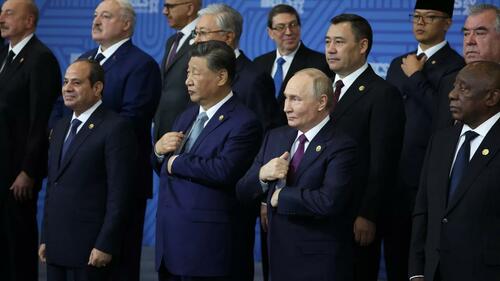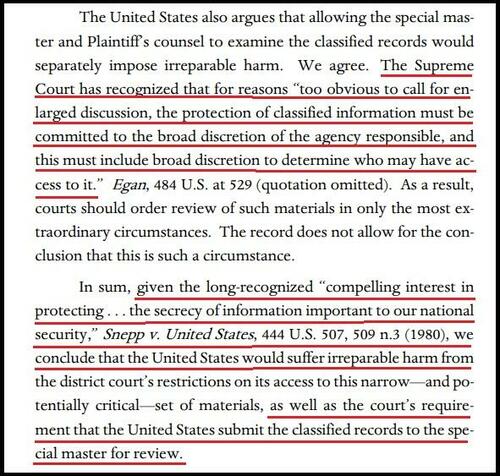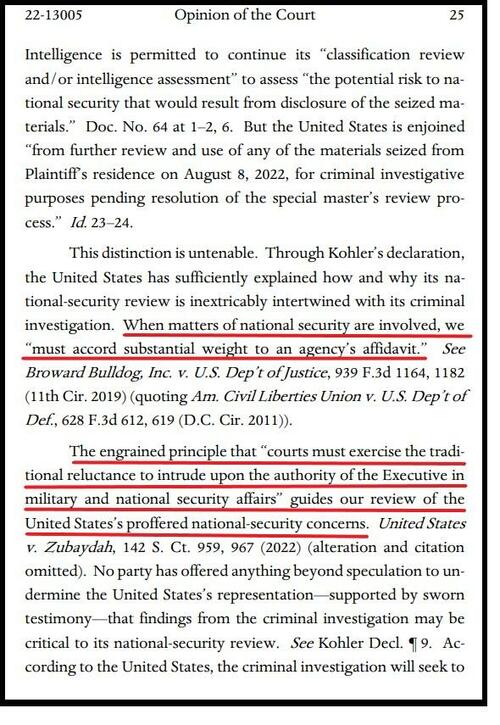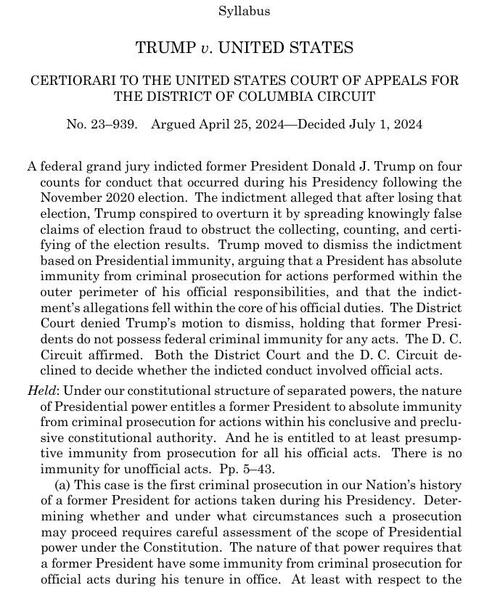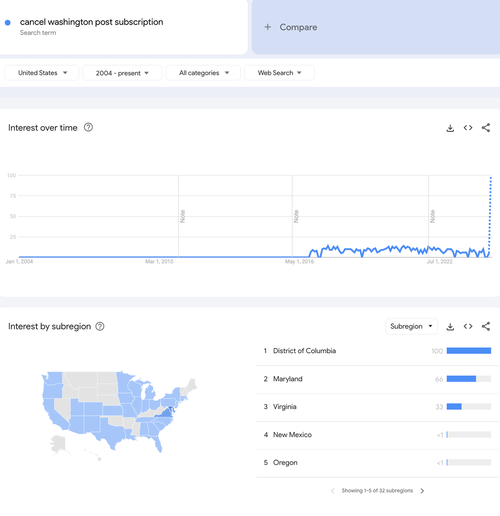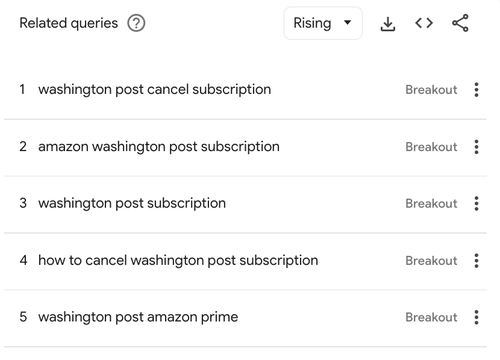Iran Readies Major Retaliatory Strike From Iraq ‘In Coming Days’: Israeli Officials
Iran Readies Major Retaliatory Strike From Iraq ‘In Coming Days’: Israeli Officials
Axios is reporting Thursday that Iran is still preparing a major retaliation in response to the Israeli aerial attack of the overnight and early morning hours of last Saturday. Israel’s strikes on missile and military facilities was itself a much anticipated response to the Oct.1st ballistic missile attack.
While most regional observers believe the tit-for-tat has cooled down, reflected in declining oil prices this week, the Axios report cites a pair of Israeli officials to say “Israeli intelligence suggests Iran is preparing to attack Israel from Iraqi territory in the coming days, possibly before the US presidential election.”
This would involve large numbers of drones and ballistic missiles, they say. Throughout the Gaza war, there have been sporadic drones launched by Iran-backed paramilitary units in Iraq, but nothing on a major scale.
Israeli sources on Thursday have suggested Iran is actually moving ballistic missiles to prepare for such an attack.
Also, Iranian Revolutionary Guard Corps (IRGC) commander Hossein Salami has been cited as saying that Iran’s response will be “different from any scenario” Israel might expect.
CNN too has been reporting the fresh threats, on Wednesday writing the following based on Iranian military sources:
Israel’s recent attacks on Iran will be met with a “definitive and painful” response that will likely come before the US presidential vote, a high-ranking source told CNN on Wednesday.
The remarks signal a departure from Iran’s initial attempts to downplay the severity of the strikes carried out by Israel on October 25, which marked the first time Israel has openly acknowledged striking Iranian targets.
“The response of the Islamic Republic of Iran to the aggression of the Zionist regime will be definitive and painful,” the source, who is familiar with Iran’s deliberations, said.
Although the source did not provide an exact date for the attack, they said it “will probably take place before the day of the US presidential election.”
Meanwhile, the Iraqi government is seething over Israeli warplanes violating its airspace during last weekend’s attack. It has lodged an official protest note with the United Nations about the illegal breach.
It appears the some one hundred Israeli jets reportedly used in the attack fired on Iran from over neighboring Iraqi airspace. Such a tactic has long been utilized by the Israeli Air Force in attacking Syria, as it typically fires from over undefended Lebanese airspace.
Currently US and Israeli negotiators say they are getting close to achieving a ceasefire with Hezbollah, but any new large-scale attack from the ‘Iranian axis’ would surely jeopardize such a potential deal.
Tyler Durden
Thu, 10/31/2024 – 17:45
Harvard Memorial Church To Host “Reading Taylor Swift As A Sacred Text” Event
Harvard Memorial Church To Host “Reading Taylor Swift As A Sacred Text” Event
Authored by Jennifer Kabbany via The College Fix,
A Harvard Memorial Church student program is slated to host a “Reading Taylor Swift as a Sacred Text” tonight.
The Tuesday evening event is organized by the Memorial Church Student Program Coordinator & Multifaith Engagement fellow.
“What can reading the texts that matter to us as sacred tell us about ourselves and our lives? Discover a new way to engage with the Taylor Swift canon that honors the important emotional and spiritual role her work plays in many peoples’ lives. Bring your favorite Taylor Swift song and we’ll bring the sacred reading practices,” the event description states.
The RSVP page also states the gathering is “open to people from all religious, ethical, and spiritual backgrounds.”
“We will be using Lectio Divina, an ancient Christian monastic reading practice, but the insights you gain from this practice will not necessarily be connected to the Christian tradition or ‘religious’ in nature. Students are invited and encouraged to bring insights and wisdom from their own lives, traditions, and backgrounds.”
Harvard is no stranger to Swift adoration.
It offered a class dedicated to the pop star last spring.
That class even hosted an all-nighter to review the release of her new album “The Tortured Poets Department.”
As The College Fix previously reported, the University of Florida’s Honors Program offered a course on Swift last semester.
As it relates to the intersection between Swift and religion, The Fix reported in July about a class at Duke University that involved Swift and the occult:
At Duke University, a first-year writing course called “Radical Magic,” will analyze why magic and the supernatural “have been coded as feminine, irrational, and sinister.” Students also will discuss why people accuse Taylor Swift of witchcraft.
Course instructor Cheryl Spinner told The Fix via email [at the time] her class will look at footage of Swift’s Eras Tour and “use gender and feminist studies to parse out what’s really going on with these accusations.”
Spinner said she had productive discussions in previous classes about the pop star, including the lyrics from one of her songs: “I leap from the gallows and I levitate down your street,” which Swift sings on a moving stage that appears to make her float.
The class also will examine the literacy quality of tarot cards, spells, and incantations. Their final project will be to create a grimoire, or spellbook that records “magical insights and oral traditions that might otherwise be forgotten,” according to Spinner.
An entire academic conference has also been dedicated to Swift in the past, zeroing in on topics such as gender, capitalism and feminism.
Tyler Durden
Thu, 10/31/2024 – 06:30
Did Boston Dynamics Get Jealous After Spotlight On Tesla’s Optimus Robot?
Did Boston Dynamics Get Jealous After Spotlight On Tesla’s Optimus Robot?
Less than a day after Tesla CEO Elon Musk made bold claims at the Future Investment Initiative Conference in Saudi Arabia, touting big AI growth in the coming years, which is only suggestive of powerful tailwinds for his Optimus robot, Boston Dynamics—once the leader in viral humanoid robot videos—published a clip on YouTube on Wednesday morning showcasing its robot performing typical warehouse tasks usually carried out by workers in Amazon distribution centers.
Maybe a bit of jealousy is unfolding between Boston Dynamics and Musk’s Optimus robot, which has received a lot of attention in October – from the “We, Robot“ event on October 10 to Musk’s comment at the event in Saudi Arabia on Tuesday:
“I think by 2040, probably there are more humanoid robots than there are people. Every country will have an AI or multiple AIs, and there will be a lot of robots, way more robots than people.”
Back to the We, Robot event, where Musk said Optimus will cost less than $30,000 and forecasted that the humanoid robot will be the company’s most popular product in the years ahead…
NEW: Elon Musk introduces an army of Optimus robots, says people will be able to buy them to complete tasks.
Epic.
Musk then said attendees could walk up to the Optimus robots who would do things like serve drinks.
“At scale, you should be able to buy an Optimus robot for… pic.twitter.com/zsGF4zzhaR
— Collin Rugg (@CollinRugg) October 11, 2024
Maybe all this attention on Optimus provoked Boston Dynamics to release a video of its bipedal humanoid robot, Atlas.
Here’s more from Boston Dynamics:
Atlas is autonomously moving engine covers between supplier containers and a mobile sequencing dolly. The robot receives as input a list of bin locations to move parts between.
Atlas uses a machine learning (ML) vision model to detect and localize the environment fixtures and individual bins [0:36]. The robot uses a specialized grasping policy and continuously estimates the state of manipulated objects to achieve the task.
There are no prescribed or teleoperated movements; all motions are generated autonomously online. The robot is able to detect and react to changes in the environment (e.g., moving fixtures) and action failures (e.g., failure to insert the cover, tripping, environment collisions [1:24]) using a combination of vision, force, and proprioceptive sensors.
Suppose robots and AI are forecasted to lead to millions of job losses in the years ahead. Then why did Democrats facilitate the greatest migrant invasion this nation has ever seen with low-skilled, unvetted illegal aliens when many of those jobs are likely to be automated away? Ah, yes, it’s all about the votes.
Tyler Durden
Wed, 10/30/2024 – 23:25
Democrats Plan For Color Revolution
Democrats Plan For Color Revolution
Authored by Jeff Carlson and Hans Mahncke via Truth Over News,
It feels like there’s been a notable shift amongst Democrats in the last month. A recent sense of fatalism – or perhaps just simple resignation to what appears to be an inevitable Trump win. But as it turns out, there are some Democrats who have been preparing for this potential outcome for at least the last year.
One of those people is Norman Eisen, and it looks like he’s up to his old Lawfare & Color Revolution tricks again. The man responsible for virtually all of the legal attacks on President Trump now has a new activist group – although it has many of the same players – and they’re preparing for an assault on a second Trump Presidency.
Eisen, a Brookings senior fellow, Obama’s former White House Ethics Czar and Ambassador to Czechoslovakia during the “Velvet Revolution,” has been behind the ongoing Lawfare that has targeted Trump for years. Eisen was one of the primary forces behind the first impeachment of Trump and is also the co-founder of Leftist non-profit CREW or Citizens for Responsibility and Ethics in Washington.
Eisen played a lead role in Democrats pre-2020 election war games which predicted a remarkably accurate contested election scenario that ended unfavorably for Trump. Of particular note in regards to his current efforts, Eisen is also the author of the highly influential color revolution manual, The Democracy Playbook.
Eisen’s latest venture, State Democracy Defenders Action (SDDA), bills itself as bringing “together a bipartisan all-star team of experts in safeguarding democracy” and ominously claims they help “shape the long term strategy to defeat Election denial and its logical outgrowth: American Autocracy, starting with preparing for a vigorous response to whatever 2025 – and beyond – may bring.”
Their site claims that SDDA will “fill three key gaps in the fight against election sabotage and autocracy” by going “on offense against democracy deniers who break the law, including through our innovative program of outside public support for criminal prosecutions.”
The group says they “work with national, state and local allies across the country to defend in real-time the foundation of our democracy – free and fair elections.” State Democracy Defenders Action also foreshadows future civil unrest by claiming to “help shape the long-term strategy to defeat autocracy in 2025 – and beyond.”
As we’ll see, this sounds like the formation of a Color Revolution.
Central to their efforts are what the group calls their 10 Principles, which can appear innocuous with a casual glance but are actually representative of NeoCon, Never-Trump talking points and Globalist Goals. When one reads these principles with an eye towards a future Trump Presidency, their words take on an entirely different meaning.
The group’s first principle states that they “believe in the foundational idea of rule of law.” But that claim is immediately followed by a weaponized declaration that’s obviously aimed at Trump:
“Our country cannot be led by anyone who believes they are not accountable to our Constitution or who repeatedly and persistently violates civil and criminal statutes. That is disqualifying and contrary to the principle of rule of law.”
You can probably see where this is going. State Democracy Defenders Action repeatedly references J6, Project 2025 and Autocracy, utilizing these leftist dog whistles wherever possible:
“We are alarmed about the rising autocratic movement in the United States that threatens the American idea and the American people. January 6, 2021, represented an ugly inflection point of this movement and it is driving forward with authoritarian proposals like Project 2025 that constitute an assault on the freedoms of every American. This movement threatens to eviscerate our rights, our prosperity, and our stability and security upon which our nation and the world rely.”
The group also appears to be preparing to fight Trump’s planned downsizing of the federal government, noting that career civil service employees “work in our government irrespective of the political party or ideology of the person elected to the Presidency.” They laughingly claim that “Our civil servants’ obligations to the people of this country, the Constitution, and the rule of law serve a fundamental role in effective democratic governance.”
Eisen appears to be using many of the useful idiots and perennial talking heads that he hosts on his weekly lawfare calls: Jennifer Rubin, Asha Rangappa, George Conway, Joe Walsh, Ruth Ben-Ghiat, Ty Cobb, John Dean, Heath Mayo, and Skye Perryman.
Although most are not particularly impressive, these operatives do have a purpose to fulfill. The way Eisen’s projects have worked historically is through the establishment of a public-facing entity that propagates and publicizes their ideas and agendas while disguising the organization’s more sinister goals.
Eisen and the other senior operators always seem to use the same talking heads and former federal prosecutors to get their narrative circling in the public sphere. A public “prep” if you will. Meanwhile, a far more serious effort is mounted behind the scenes.
In advance of the 2020 election, Edward Foley, an Eisen collaborator and head of the election law program at Ohio University, issued a 55-page paper discussing the coming Blue Shift – a theory which holds that Democratic candidates often gain votes in the days following the actual election. This narrative was carefully crafted by Eisen’s operatives and carried by the media over the next twelve months.
By the time the 2020 election arrived everyone anticipated a delay in voting results. The sudden overnight shift from a Trump lead to a Biden win was still a huge shock – but it would have been impossible without this careful advance planning and widespread dissemination by Democrat operatives. Eisen’s useful idiots fulfill precisely this function – which is why he uses them in almost all of his operations.
But make no mistake. More serious operators are in charge of things. In addition to Eisen, there’s Eisen’s original Lawfare partner Norm Ornstein of American Enterprise Institute, NeoCon and Never-Trumper Bill Kristol (we can debate how serious Kristol actually is), the Atlantic’s David Frum, Susan Corke (Managing Director of SDDA), Victoria Nuland’s husband Robert Kagan – and DNC Power Operative Michael Podhorzer.
Podhorzer, the former political director of the AFL-CIO and current Fellow at the Center for American Progress, is the man credited in Time’s now-infamous article, The Secret History of the Shadow Campaign, as being “The Architect” of Biden’s “win in 2020. Podhorzer is also the founder of The Analyst Institute, which has been referred to as “the nerve center of the data-driven empirical turn in Democratic campaign strategies.”
Unlike the public-facing useful idiots, Podhorzer is rarely seen and once again appears to be operating behind the scenes. Podhorzer is a highly powerful, highly influential, but little known DNC operative – and while we can’t prove it, our guess is that he’s directing Eisen rather than the other way around.
The inclusion of Robert Kagan, a Brookings Fellow like Eisen, is also notable. He recently “resigned” from the Washington Post after the paper refused to endorse Kamala. A long-time NeoCon, Kagan has worked tirelessly to lie and manipulate our country into multiple wars. His wife, Victoria Nuland, was instrumental in overthrowing the legitimately elected government in Ukraine in early 2014 and she was also involved in the RussiaGate lie – receiving perhaps the earliest known copy of the Steele Dossier in early July 2016.
Back in November 2023, Kagan penned a dangerous – 6,000 word editorial in the Washington Post titled “A Trump dictatorship is increasingly inevitable. We should stop pretending.” Kagan said a Trump win was all but inevitable – and Trump would rule as a ruthless dictator “unless something radical and unforeseen happens.”
As Mollie Hemmingway noted at the time, “This extreme and dangerous genre – of claiming Trump is Hitler (because, they say, he might do what Democrats are doing right now) – should probably be given the name Assassination Prep.”
Kagan’s inclusion in Eisen’s new effort also explains the sudden appearance of Victoria Nuland on Rachel Maddow – which prompted Alexandros Marinos to ask “Did Nuland step down from State so she could coordinate the color revolution playbook from outside, like she did in Ukraine?” The answer to that question is almost certainly a resounding “yes.”
After resigning from the State Department, Nuland joined the Board of Directors at the National Endowment for Democracy. As Mike Benz notes, the NED is really just a CIA cut-out – and a major driver in the censorship of Americans – something that Nuland told Maddow she still supports:
“In 2020, the social media companies worked hard with the government to try to do content moderation to try to catch this stuff as it was happening, but this time we have Elon Musk talking directly to the Kremlin and ensuring that every time the Russians put out something like this, it gets 5 million views on X before anybody can catch it. So it’s quite dangerous.”
Eisen’s new group has also collaborated closely with the No Dictators Declaration, a loose-knit coalition organized by Senator Jamie Raskin – who recently stated that he intended to lead an effort to refuse to certify Trump as president if Trump won the election. Included in the No Dictators Declaration are specific calls to reduce Trump’s ability to respond to any post-election domestic unrest or civil uprisings. From their A Call to Protect American Freedoms declaration:
-
To reduce the threat of dictatorship, Congress should limit the president’s ability to declare bogus domestic and foreign emergencies.
-
To reduce the threat of dictatorship, Congress should limit the president’s abuse of his or her power to deploy the military on American soil.
-
Under the outdated and overbroad Insurrection Act, presidents can claim extraordinary powers to deploy troops domestically. Recently, some have called for its invocation to prevent Americans from exercising their First Amendment rights of free expression.
-
-
To reduce the threat of dictatorship, Congress should prevent the adoption of partisan, personal, and ideological loyalty tests, loyalty oaths, and similar authoritarian measures designed to purge the professional civil service and replace qualified workers with unqualified loyalists to the president.
-
Working for the federal government means working for the American people under the Constitution and the rule of law.
-
-
To reduce the threat of dictatorship, Congress should ensure that presidents who abuse their powers to commit crimes can be prosecuted like all other people.
-
The founders overthrew a king and wrote a Constitution to enshrine the core American ideal that no person is above the law. We the people must restore the concept that we are all equal before the law.
-
-
To reduce the threat of dictatorship, Congress should limit the president’s ability to use investigative and prosecutorial decisions and resources to pursue vendettas against disfavored people and groups.
-
The Department of Justice, the Internal Revenue Service, and other government agencies cannot become instruments of tyranny. We must make certain that the executive branch cannot employ increasingly creative ways to persecute individuals, civil society organizations, and nonprofits based on their ideologies.
-
The U.S. currently has 42 national emergencies declared, some decades-old. Under emergency powers, a president can claim the authority to divert funds, seize property, and bypass Congress.
-
Everything contained within the group’s declaration is designed to limit and neuter a Trump Presidency – to cripple Trump’s ability to respond and follow through on his campaign promises. Their declaration is really the fearful confession of guilty parties who are willing to do anything to avoid accountability.
One word that’s used over and over again by Eisen’s group is Autocracy – in which absolute power is held by the ruler – in this case Trump. It’s a subtle continuation of the “Trump is Hitler” theme that’s used as the rationale for the group’s existence (Eisen’s group even has an extensive “American Autocracy Threat Tracker”). As SDDA member Ruth Ben-Ghiat stated, “This is an anti-autocracy conference because autocracy is what we are looking at if Donald Trump comes back to the White House.”
It’s also why there’s a continual focus on restricting Trump’s use of the Insurrection Act.
A number of current and former officials have claimed that Trump will attempt to use military force. Leon Panetta, who served as Obama’s CIA Director and then as his Secretary of Defense, told NBC that “Like any good dictator, Trump’s going to try to use the military to basically perform his will.” Senator Dick Blumenthal breathlessly claimed that “There are an array of horrors that could result from Trump’s unrestricted use of the Insurrection Act.”
Mary McCord, executive director of the Institution for Constitutional Advocacy and Protection at Georgetown Law, told NBC that “‘We’re already starting to put together a team to think through the most damaging types of things that Trump might do so that we’re ready to bring lawsuits if we have to.”
McCord was the Acting head of the DOJ’s National Security Division from 2016 to 2017 and she was involved in the FBI’s early FISA surveillance of Trump advisor Carter Page. McCord was also appointed by Nancy Pelosi as legal counsel to the Jan 6th Capitol Security Review Task Force and has written articles pushing the Jan 6th narrative. McCord is one of the very worst of the Deep State actors.
The Insurrection Act authorizes the president to deploy military forces inside the United States to suppress rebellion or domestic violence or to enforce the law in certain situations. The Insurrection Act was last invoked in 1992, during the L.A. riots that followed the Rodney King beating by police. Both sides seem to believe that it may be needed again.
Podhorzer placed things into frightening context when he told the Autocracy in America conference that “The key question going into November is whether or not – and this is the message this conference is trying to get across – is to believe that this is an election as profound as any since 1860 about where this country is going.”
Podhorzer knew exactly what he was invoking. The election of Abraham Lincoln in 1860 marked the final slide of America into the Civil War which formally began on April 12, 1861.
We mentioned the Time Magazine article on the 2020 election earlier, and we did so for a reason. There were several material admissions made, not the least being that the Left does actually control the activities of groups like Antifa, Black Lives Matter and others that rioted throughout the 2020 election year.
As the article notes, “Many of those organizers were part of [Mike] Podhorzer’s network” the man credited in Time’s article as being “The Architect” of the entire election effort.
The article detailed how more than 150 liberal groups had joined the “Protect the Results” coalition and stated that “The group’s now defunct website had a map listing 400 planned post election demonstrations, to be activated via text message as soon as Nov. 4. To stop the coup they feared, the left was ready to flood the streets.”
There is another unspoken admission here as well. The trigger for the pre-planned riots was a Biden loss, not a “stolen election”. Or said another way, the Left would determine what comprised a stolen election only by its outcome.
This matter was further highlighted by Angela Peoples, director for the Democracy Defense Coalition, who told Time Magazine that “We wanted to be mindful of when was the right time to call for moving masses of people into the street.”
But after Fox called Arizona for Biden, a decision was made to “stand down”. As Podhorzer noted, “They had spent so much time getting ready to hit the streets on Wednesday. But they did it…there was not a single Antifa vs. Proud Boys incident.”
In other words, Podhorzer and his crew effectively controlled the actions of Antifa and Black Lives Matter – if not completely, then at the very least during these critical moments and days. It seems likely that they control these same groups today.
In his Color Revolution playbook, Eisen wrote that “Political opposition groups should form networks between other opposition groups, local electoral activists, civil society groups, and, where appropriate, international organizations and actors” and “Forcefully contest each individual illiberal act of non-democratic actors”.
Eisen also foreshadowed his continued use of lawfare, noting that “big data and AI can play a role in litigation by forecasting which judges and jurisdictions are responsive to specific arguments, thereby guiding well-funded litigants while disadvantaging those without access to such tools.”
The plans by Eisen’s group should be taken seriously. We all remember the chaos and widespread civil unrest that took place in 2020. And don’t forget. If Trump is Hitler, then in Eisen’s eyes we are the “non-democratic actors” that his group is targeting.
TRUTH OVER NEWS is a reader-supported publication. To receive new posts and support our work, please consider becoming a free or paid subscriber.
Tyler Durden
Wed, 10/30/2024 – 18:00
Building A Better City: Why Markets Are Our Best Architect
Building A Better City: Why Markets Are Our Best Architect
What if the key to solving our urban crises, such as housing shortages, traffic congestion, and wealth inequality, lies not in more government intervention, but in the principles of free-market economics? Market urbanism offers a bold vision for our cities, one that harnesses competition and individual choice to create livable, thriving environments. As traditional planning methods falter, it’s time to utilize market-driven solutions to reshape our urban landscapes for the better.
At its core, market urbanism posits that cities work best through bottom-up, private sector activity rather than centralized government planning.
This concept, rooted in classical liberal economic principles, offers a compelling alternative to the status quo of urban development.
One of the most pressing urban issues today is the shortage of affordable housing. Conventional wisdom often blames developers and market forces for rising home prices. However, a closer examination reveals that government regulations, particularly restrictive zoning laws, are the primary culprits behind housing unaffordability. These regulations limit housing supply, driving up costs and exacerbating inequality.
Market urbanism calls for a significant relaxation or even abolition of these restrictive zoning laws. By allowing developers to build more densely and flexibly, cities can increase housing supply and naturally bring down prices. This isn’t just theory – real-world data supports this approach. Metros known for their more permissive building regulations consistently show lower median home prices compared to heavily regulated markets.
For instance, Houston, known for its relatively lax zoning laws, issued 88.3 building permits per 10,000 residents in 2019. In contrast, New York City issued only 30.4 permits per 10,000 residents. Unsurprisingly, Houston’s median home price remains far more affordable than New York’s. This pattern holds true across multiple metro areas, demonstrating a clear correlation between building freedom and housing affordability.
Transportation is another area in dire need of overhaul. Instead of relying solely on government-planned and operated transit systems, market urbanists advocate for a more diverse, competitive transportation landscape. This could include private bus services, ride-sharing platforms, and market-priced road usage to reduce congestion.
The success of such approaches is evident in areas that have embraced market-oriented transportation policies. Cities that have implemented congestion pricing, such as London and Singapore, have seen reduced traffic and improved air quality.
Opponents of market urbanism typically raise concerns about equity and displacement. They argue that market-driven development could lead to gentrification and the displacement of low-income residents. However, the root cause of these issues is the artificial scarcity created by restrictive regulations. By allowing more housing to be built across all neighborhoods, cities can relieve pressure on existing affordable areas and provide more options for residents at all income levels.
Market urbanism doesn’t call for a complete absence of government involvement in urban development. Rather, it advocates for a shift in the role of government from top-down planner to a simple facilitator of market processes. Governing bodies should ensure the system runs smoothly through external controls, instead of inefficiently dictating every minute internal detail.
As we look to the future, the need for new approaches to urban development becomes more apparent. The United Nations projects that by 2050, 68% of the world’s population will live in urban areas. This urban growth will require cities to adapt quickly and efficiently to meet the needs of their residents.
Market urbanism offers a promising path forward. By harnessing the power of markets and individual choice, cities can become more responsive to the needs and preferences of their residents. This approach has the potential to create more affordable housing, efficient transportation systems, and better overall urban spaces.
As we grapple with the urban challenges of the 21st century, it’s clear that the old ways of centralized planning and restrictive regulations are no longer sufficient. However, implementing market urbanist policies will require overcoming entrenched interests and long-held beliefs about urban development. It will take politicians cutting long-held ties to companies and lobbyists in favor of seeing their cities thrive. By embracing this approach, we can create urban environments that truly serve the needs of all residents and form cities with a prosperous future.
Tyler Durden
Wed, 10/30/2024 – 06:30
Escobar: BRICS Make History – Can They Maintain The Momentum?
Escobar: BRICS Make History – Can They Maintain The Momentum?
Authored by Pepe Escobar,
The not so simple twists of fate always allow certain cities to make their mark in History in ineffable ways. Yalta. Bretton Woods. Bandung – a 1955 de-colonization staple. And now Kazan.
The BRICS summit in Kazan, capital of Tatarstan, under the Russian presidency was historic in more ways than one – followed with riveting attention by the whole Global Majority and with perplexity by a great deal of the declining Western order.
It did not change the world – not yet. But Kazan should be seen as the departing station of a high-speed train journey towards the emerging multi-nodal new order. The metaphor was also spatial: the pavilions at the Kazan Expo center “station” holding the summit simultaneously connected to the airport and to the aero-express train to the city.
The rippling effects of BRICS 2024 in Kazan will be perceived for weeks, months and years ahead. Let’s start with the breakthroughs.
The Kazan Manifesto
1.The Kazan Declaration. That is no less than a detailed diplomatic manifesto. Yet because BRICS is not a revolutionary agent – as its members do not share an ideology – arguably the next best strategy is to propose real reform, from the UN Agenda 2030 to the IMF, the World Bank, the WTO, the WHO and the G20 (whose summit is next month in Rio).
The kernel of the Kazan Declaration – which had been debated for months – is to move in practice towards in-depth institutional changes and to reject Hegemony. The Declaration will be presented to the UN Security Council. There’s no doubt the Hegemon will reject it.
This paragraph sums up the reform drive: “We condemn the attempts to subject development to discriminatory politically motivated practices, including but not limited to unilateral coercive measures that are incompatible with the 5 principles of the UN Charter, explicit or implied political conditionality of development assistance, activities, aiming at compromising the multiplicity of international development assistance providers.”
2. The BRICS Outreach session. That was Bandung 1955 on macro-steroids: a microcosm of how the new, really de-colonized, non-unilateral world is being born.
President Putin opened and handed the floor to the leaders and heads of delegations of other 35 nations, most at the highest level, including Palestine, plus the UN Secretary General. Quite a few speeches were nothing short of epic. The session lasted 3h25. It will be circulating all across the Global Majority for years.
The session tied up with the announcement of the new 13 BRICS partners: Algeria, Belarus, Bolivia, Cuba, Indonesia, Kazakhstan, Malaysia, Nigeria, Thailand, Turkiye, Uganda, Uzbekistan, Vietnam. A strategic tour de force including 4 Southeast Asian powerhouses; the top two Central Asian “stans”; 3 Africans; 2 Latin Americans, and NATO member Turkiye.
3. The Russian BRICS presidency itself. Arguably no other nation would have been able to pull off such a complex and impeccably organized summit, held after over 200 BRICS-related meetings throughout the year across Russia conducted by unnamed sherpas, members of working groups and the BRICs Business Council. Security was massive – for obvious reasons, considering the odds of a false flag/terrorist attack.
4. Connectivity corridors. That is the main geoeconomic theme of Eurasia integration, and Afro-Eurasia integration as well. Putin explicitly named, more than once, the new growth drivers of the near future: Southeast Asia and Africa. Both happen to be key partners of several high-profile Chinese Belt and Road Initiative (BRI) projects. Additionally, Putin named the top two connectivity corridors of the future: the Northern Sea Route – which the Chinese describe as the Arctic Silk Road – and the International North-South Transportation Corridor (INSTC), where the three drivers are BRICS members Russia, Iran and India.
So that translates as BRICS China crisscrossing Eurasia from east to west while BRICS Russia/Iran/India crisscross it from north to south, with ramifications in all latitudes. And with all the energy add-ons, with Iran positioning itself as a crucial energy hub, opening the finally feasible possibility of building the Iran-Pakistan-India (IPI) pipeline, one of the unfinished sagas of what I described in the early 2000s as Pipelineistan.
The Return of the Primakov Triangle
There were immense expectations all across the Global Majority of a major breakthrough in Kazan on alternative payment systems. Realist Russian-Chinese finance tech experts commented they did “not see anything at all except for another round of initiatives about grain exchange, precious metals exchange and investment platform. BRICS Clear is being somehow developed but the rest will not work without proper sovereign infrastructure.”
And that brings us back to the UNIT project – a form of “apolitical money”, anchored in gold and BRICS+ currencies, which was exhaustively discussed by the working groups and reached the Russian Ministry of Finance. The next necessary step is a trial run by a major business conglomerate. That may happen soon, and if successful, will stimulate other major companies in BRICS nations to tag along.
As for the BRICS digital investment platform, it is already a go. Alongside the NDB – the BRICS bank, and Putin encouraged former Brazilian President Dilma Rousseff to stay on the helm – this will facilitate Global South access to financing without the dreaded IMF/World Bank “structural adjustment” conditionalities. The BRICS grain exchange, establishing clear, transparent rules, will be essential to ensure Global South food security.
The BRICS made it clear that the complex drive towards a new settlement/payment infrastructure is inevitable, but a long work in progress, especially when the G7 – which for all practical purposes is hijacking the agenda for the G20 next month in Rio – wants to finance at least $20 billion of a $50 billion package to Ukraine with proceeds from stolen Russian assets.
And that brings us to the most glaring BRICS problems.
Achieving consensus on difficult dossiers is extremely hard – and may lead, in the long run, to BRICS moving towards an absolute majority mechanism to get things done.
The Brazilian case – vetoing Venezuela as a BRICS partner – did not go down well at all among members, among partners and across the Global South. The current Lula government may be under tremendous pressure by the Hegemon’s Democrat establishment, but that in itself does not explain the decision.
There is a massive anti-BRICS lobby inside the highest levels of the Brazilian government, “facilitated”, as usual, by American NGOs as well as the European Commission (EC), heavily infiltrated among the proverbial comprador elites. Brasilia this year privileged the G20 over BRICS. That foresees trouble for next year, when Brazil assumes the BRICS presidency.
Prospects are not exactly brilliant. The BRICS summit next year is scheduled for July – and the decision seems to be final. That makes no sense – to do the recap of a working agenda in the middle of the year. The official excuse is that Brazil also needs to organize the Cop-30 climate conference in November. So a suggestion will be floated by top Brazilian economist Paulo Nogueira Batista Jr to hold a parallel BRICS wrap-up session during the 2025 G20 summit, which will be held in BRICS member South Africa.
President Putin has been very accommodating – even proposing Dilma Rousseff to remain at the helm of the NDB. Yet the Russian presidency of the NDB technically starts next year; a more suitable candidate for head of the NDB would be Aleksei Mozhin, until recently the Russian representative in the IMF.
There’s a major takeaway of all of the above.
Kazan proved that the driving force of BRICS is actually the notorious Primakov triangle – or RIC (Russia, India, China). It’s now possible to add Iran, and that would make it RIIC. Everything of substance in the inter-connected processes of BRICS integration and Afro-Eurasia integration depends on RIIC.
Saudi Arabia remains an open proposition. Not even Putin answered whether Riyadh is in, out, or over the wall. Diplomatic sources hint MbS is waiting for the result of the US presidential elections. As much as Saudi Arabia’s wealth is invested in the Anglo-American sphere – and can be stolen in no time – relations with the Russia-China strategic partnership at the highest level are excellent.
RIC scored a major hit right before the Kazan summit with Beijing and New Delhi announcing their Ladakh normalization. That was achieved by Russian mediation. Then there’s Turkiye; Erdogan was adamant to stress his BRICS enthusiasm in the few hours he spent in Kazan. Later in Istanbul, scholars confirmed he’s dead serious about Turkiye’s partner status and eventual admission as a full member.
In the language of symbols, the minarets of the Kul Sharif mosque in the Kazan Kremlin were the de facto trademark of the summit: graphic multipolarity in effect. The lands of Islam did get the message – with serious, auspicious repercussions ahead. As for the conductors as the high-speed multi-nodal train leaves the station, all attention should be focused on RIIC. May all the Global South have a safe trip.
Tyler Durden
Tue, 10/29/2024 – 23:25
Starbucks Warns Corporate Staff: Show Up In Office Or Get Fired
Starbucks Warns Corporate Staff: Show Up In Office Or Get Fired
The golden era of remote work seems to be ending. Starbucks is the latest mega-corporation to enforce a return-to-office mandate for white-collar workers.
An internal message from the coffee chain obtained by Bloomberg and the Wall Street Journal states a new “standardized process” will be implemented at the start of the new year to hold employees accountable if they don’t comply with work requirements, such as coming into the office at least three days a week. The memo stated that non-compliance could result in termination.
Starbucks reminded hybrid white-collar workers that working arrangements had not changed and that rules must be followed. The memo emphasized: “We are continuing to support our leaders as they hold their teams accountable.”
Bloomberg quoted new Starbucks CEO Brian Niccol last month as saying, “This is not a game of tracking. This is a game of winning,” adding, “I care about seeing everybody here succeed, and if success requires us being together more often than not, let’s be together more often.”
A company spokesperson told Bloomberg, “We are continuing to support our leaders as they hold their teams accountable to our existing hybrid work policy.”
The bigger picture here is the remote work revolution across corporate America was more or less a total flunk. It did not drive increased office productivity; instead, it was the opposite. More or less, hybrid work policies, a combination of home and office, will likely be the gold standard moving forward.
Meanwhile, Amazon CEO Andy Jassy recently told corporate staffers to work from the office five days a week, up from three days a week – completely reversing pandemic-era policies. Also, UPS, JPMorgan Chase, Dell Technologies, and Boeing have asked parts of their white-collar workforces to return to offices full-time.
We suspect Starbucks CEO Niccol’s enforcement of office work requirements is part of his attempt to turn around the sinking ship.
Tyler Durden
Tue, 10/29/2024 – 17:40
“We’ve Reached Our Limit!” Berlin Police Chief Warns Of Unsustainable Immigration Amid Soaring Migrant Crime
“We’ve Reached Our Limit!” Berlin Police Chief Warns Of Unsustainable Immigration Amid Soaring Migrant Crime
Authored by Thomas Brooke via Remix News,
Germany has reached its limit on immigration with migrant-related violent crime on the rise and resources strained, a leading law enforcement chief has claimed.
In an interview with RBB, Berlin Police Chief Barbara Slowik voiced concerns over the impact of immigration on the city and the broader nation, suggesting that the current levels of immigration are unsustainable, both financially and socially.
“I believe that a limit has been reached as to what is affordable,” she told the broadcaster.
She emphasized the need for a comprehensive societal response to address the growing number of violent incidents involving immigrants and underscored the importance of integrating immigrants into Germany’s democratic values from a young age, with programs beginning in kindergarten.
“This is important for our constitutional state and therefore for our democracy,” she added, insisting it was vital to restore law and order to help make German residents feel safer and instill public confidence back into law enforcement.
As reported by Tagesspiegel, Germany’s crime rate has risen 5.5 percent over the past year, with 5.94 million cases recorded. Notably, the increase in non-German suspects — up 17.8 percent compared to a 1 percent rise among German nationals — has prompted heightened attention to crime prevention.
These figures don’t tell the whole story, as they do not differentiate the number of perpetrators with German citizenship who have a migration background from those who are German-born. Naturalizations in Berlin have surged dramatically in 2024, more than tripling compared to last year, driven by the liberalization of German naturalization laws.
In the first eight months of this year, 28,716 foreign nationals in the city applied for German citizenship — up from 18,018 for the whole of 2023. This sharp rise is linked to a nationwide reform of the citizenship law, which now allows naturalization after just five years of residence in Germany, instead of the previous eight. In some cases, foreigners can apply after just three years.
Public schools in the German capital can no longer reimburse teachers for school trips due to budget constraints, but the local government increased its expenditure on migrant housing to €1.3 billion in the summer. https://t.co/zgKa4tZnEt
— Remix News & Views (@RMXnews) October 14, 2024
Berlin’s Interior Senator Iris Spranger recently announced intentions to expand police powers to enhance public safety. According to a spokesperson from the state interior ministry, upcoming amendments to the General Security and Order Act (ASOG) will broaden police authority, including granting officers access to biometric data, encrypted communications, and traffic data. These tools aim to improve crime prevention and address potential terrorism threats.
Additional measures under consideration include introducing electronic monitoring in high-risk cases, such as domestic violence. The proposed changes reflect a push toward using advanced technology to prevent crime more effectively.
Private security firms in Berlin are cashing in on the refugee crisis — earning millions from public contracts to secure migrant shelters. https://t.co/VQHQ6sO0Ax
— Remix News & Views (@RMXnews) October 8, 2024
Slowik also proposed the creation of a closed facility to house young migrant offenders temporarily — a proposal aimed at removing repeat juvenile offenders from environments that may foster crime and provide them with focused intervention.
However, a representative from the state interior ministry confirmed that no plans currently exist for such a facility.
Tyler Durden
Tue, 10/29/2024 – 06:30
“Six Ways From Sunday” And The Continuity Of Government
“Six Ways From Sunday” And The Continuity Of Government
Authored by Sundance via The Last Refuge,
During the rushed debate over the Patriot Act, was when I first heard political officials talking about the importance of “continuity of government.”
I immediately recognized what all these DC voices were describing was a construct of a post-911 government that would exist and maintain itself without the elected representatives of WeThe People.
The intelligence gathering and homeland security system put into place after the Patriot Act was passed, is a bureaucratic administrative state without the presence of elected officials controlling the apparatus. That leads to the following question:
How can a constitutional republic function without elected officials in control of it?
That question is at the heart of our current situation.
That question is at the epicenter of this “new American democracy” that no one seems to understand.
The simple answer is it cannot.
We have been fighting this three-headed IC monster (DHS, DNI, DOJ-NSD) ever since.
This reality the underlying predicate behind why Judge Aileen Cannon dismissed the Special Counsel charges against Trump. This reality is also the underlying framework behind why the Supreme Court recently reaffirmed the plenary power of the President with control over the executive.
In the post-9/11 system that was created by the Patriot Act, our Constitutional Republic was inextricably fractured, placing systems and silos in charge of government under the auspices of “continuity of government.”
From that moment forth, elected representatives no longer held authority or oversight *over* the national security apparatus. Instead, the Patriot Act flipped the actual system of democratically elected representative government.
The RESULT: Our elected officials became subservient to the institutional interests of unelected agency officials. As Senator Schumer calls them “the six ways from Sunday” coalition.
This reality empirically surfaces with people like former AG Bill Barr saying the President does not have unilateral authority over the DOJ. Also, the Lawfare approach and narrative that a President is not the arbiter of governing power. Both statements are constitutionally false, as affirmed by SCOTUS – Thank God.
Understand this. This is the root of the cancer that was always present, silent and lurking in the background institutions prior to 9/11. After the Patriot Act passed, that cancer fully metastasized and entered the bloodstream of American governance.
What was previously a slimy bag of institutional snakes, kept in place by a tenuously worn nylon bag – sewn from the remaining fabric of our constitution, was released by the Patriot Act.
Everything thereafter, including the constant bites we suffer from the unleashed weaponization, is a consequence of that moment.
That’s the root of our modern political reality.
This is the “new American democracy,” where the unelected officials and administrators within institutions hold power.
Under this Patriot Act framework, representative government [executive branch, legislative branch and even the judicial branch] are subservient to those who use the shield of national security. This outcome is the direct consequence of creating a system for the “continuity of government.”
LEARN IT!
Then, suddenly, everything about the domestic enemy we confront gets really clear.
Thankfully, the Supreme Court has now given indications that they understand what has taken place.
The Supreme Court has recently affirmed that only the President of the United States has the authority to control the Executive Branch. As a direct and consequential outcome, only the President of the United States can remove the core issue that has corrupted our constitutional intent.
Every element vested in the “continuity of government” as a manipulation of the constitution are now aligned to eliminate the threat President Donald Trump represents.
We have one chance.
Vote like your freedom depends on it, because it does.
Read the SCOTUS opinion, not from a point of view of President Trump, but from the point of view of what does this allow him to do in his second term, and what invisible straightjackets did it remove that were a threat during his first term?
While impeachment is a political process within the Legislative Branch, and the Supreme Court is extremely hesitant to overstep their role therein, the High Court did put this sentiment clearly into the opinion about immunity: …“The President is not above the law. But Congress may not criminalize the President’s conduct in carrying out the responsibilities of the Executive Branch under the Constitution.”…
Congress may not criminalize the conduct of the President simply for carrying out his core executive branch duties.
Removal of Executive Branch officials is a core duty, an official act, carrying absolute immunity.
That affirmed reality is exactly why the Deep State and Lawfare crowd are very alarmed.
Tyler Durden
Mon, 10/28/2024 – 23:25
“Colossal” Exodus: +200,000 WaPo Subscriber Cancellations After Bezos Blocks Harris-Walz Endorsement
“Colossal” Exodus: +200,000 WaPo Subscriber Cancellations After Bezos Blocks Harris-Walz Endorsement
Jeff Bezos’ decision for The Washington Post not to endorse a presidential candidate this year has resulted in a total shitshow for the progressive newspaper, with staffing members having epic meltdowns and editor-at-large Robert Kagan (husband of Victoria Nuland) walking off the job on Friday. Even more troubling for the paper is the mass exodus of liberal subscribers being reported by NPR News on Monday afternoon.
According to two sources within the paper and familiar with the subscriber exodus, over 200,000 digital subscription cancellations had occurred by Monday afternoon.
Not all cancellations take effect immediately. Still, the figure represents about 8% of the paper’s paid circulation of 2.5 million subscribers, which includes print as well. The number of cancellations continued to grow Monday afternoon. -NPR
Former Post Executive Editor Marcus Brauchli told NPR, “The problem is, people don’t know why the decision was made. We basically know the decision was made, but we don’t know what led to it.”
The editorial page editor, David Shipley, told colleagues that WaPo’s publisher, Will Lewis, said the reason for the lack of a Harris-Walz endorsement was to create an “independent space” where the newspaper does not tell people for whom to vote.
WaPo has mostly endorsed Democrats for nearly a century (with only 3 Republicans since 1928):
• 1932 to 1944: Franklin D. Roosevelt (Democrat)
• 1948: Thomas Dewey (Republican)
• 1952 & 1956: Dwight D. Eisenhower (Republican)
• 1960: John F. Kennedy (Democrat)
• 1964: Lyndon B. Johnson (Democrat)
• 1968: Hubert Humphrey (Democrat)
• 1972: George McGovern (Democrat)
• 1976 & 1980: Jimmy Carter (Democrat)
• 1984: Walter Mondale (Democrat)
• 1988: Michael Dukakis (Democrat)
• 1992 & 1996: Bill Clinton (Democrat)
• 2000: Al Gore (Democrat)
• 2004: John Kerry (Democrat)
• 2008: Barack Obama (Democrat)
• 2012: Barack Obama (Democrat)
• 2016: Hillary Clinton (Democrat)
• 2020: Joe Biden (Democrat)
• 2024: Neutral
Back to WaPo’s mass exodus of subs, Google search data shows “cancel Washington Post subscription” has gone parabolic nationwide since the weekend. Most cancelations are based in the District of Columbia, Maryland, and Virginia.
And Amazon cancellations, too?
The move comes after the Los Angeles Times declined to endorse Kamala Harris. And perhaps the rationale given the timing – just days before the presidential election – comes as the race is neck-and-neck with former President Trump.
Tyler Durden
Mon, 10/28/2024 – 18:00







